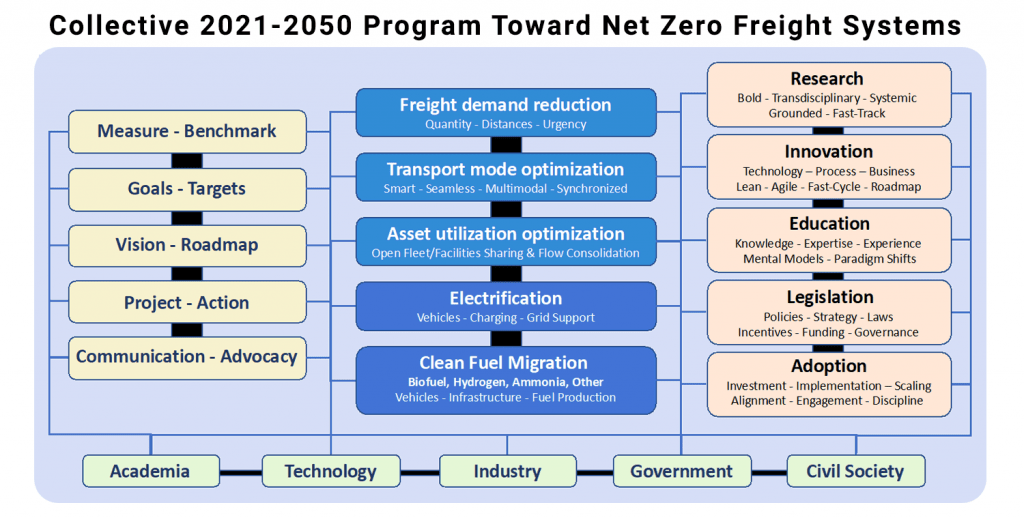We address the grand challenge of achieving Net Zero Freight Systems by simultaneously addressing Freight Emissions Technology and Freight Systems Design. Freight Emissions Technology addresses the fuels and vehicles, while Freight Systems Design addresses the effectiveness of material movement systems. By combining academic, technology, industry, governmental, and civil society efforts across these threads, we will work to identify and amplify priority improvement opportunities, provide visions, pathways, options and analysis to decision makers and the public, and track progress over time.
Synthesized in the diagram below, Georgia Tech’s Net Zero Freight System Program is a comprehensive collective endeavor of research, innovation, education, legislation, and adoption by academia, technologists, industry, government, and civil society, toward reaching net zero carbon emissions. The goal for these activities is to enable achieving order-of-magnitude improvements in terms of freight demand reduction, transport mode optimization, asset utilization optimization, electrification, and clean fuel migration, that jointly lead to net zero freight systems.

Over the duration of the program, Georgia Tech and stakeholders are to engage in measuring and benchmarking life-cycle emissions and approaches; setting, tracking, and adapting performance and capability goals and targets; co-creating visions for comprehensively and effectively addressing the challenge, and developing, tracking, and adapting a roadmap from the current state to the net zero state; develop, steer, realize projects and actions, and assess their impact; as well as communicating and advocating the challenge, the vision, the progress, and the need for engagement.
Publications
Thomas. V. M. 2023. Electric Vehicles and Low Carbon Fuels: How much do they reduce emissions? OR/MS Today. Member Insights. February 21. https://doi.org/10.1287/orms.2023.01.08
Current Methods for Life Cycle Analysis for Low Carbon Transportation Fuels in the United States, an ad hoc committee of the National Academies of Sciences, Engineering and Medicine. 2022.
